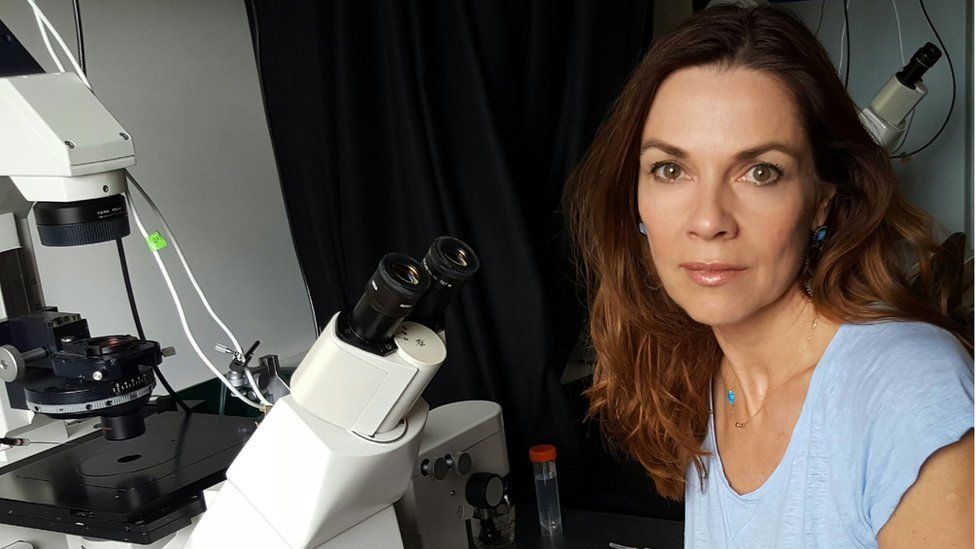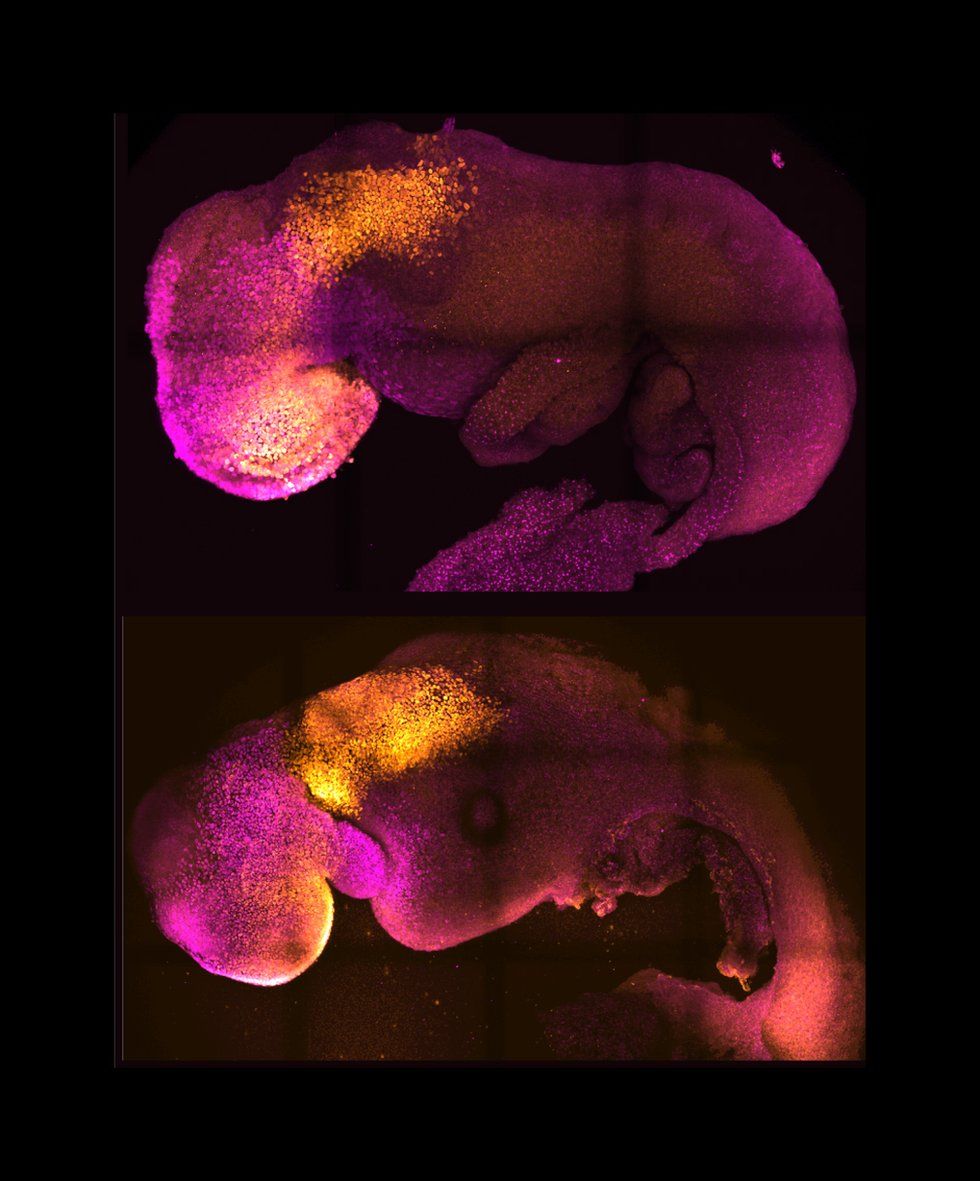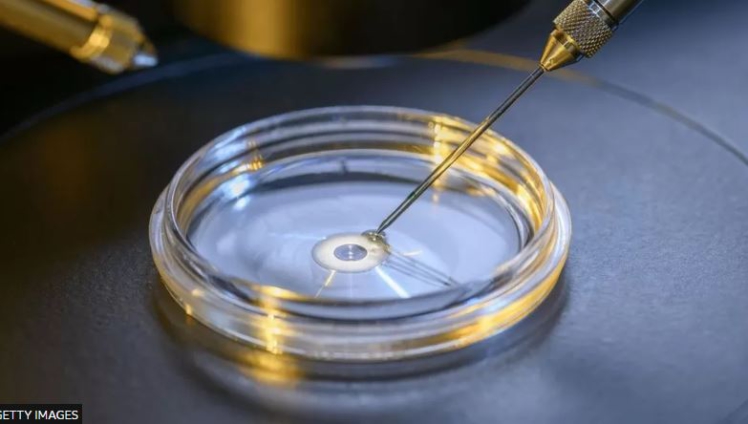Scientists have created the synthetic human embryos - using no eggs or sperm - provoking deep ethical questions, according to reports.
The synthetic embryos - only days or weeks old - could help researchers study the earliest stages of human development and explain pregnancy loss.
Nobody is currently suggesting growing them into a baby.
But the rapid progress has outpaced discussions on how they should be dealt with ethically and legally.
Prof James Briscoe, from the Francis Crick Institute, said the field needed to "proceed cautiously, carefully and transparently" to avoid a "chilling effect" on the public.
The development of human synthetic embryos was announced at the annual meeting of the International Society for Stem Cell Research.
Synthetic embryos are also known as "embryo models", as they resemble embryos, for the purposes of research, rather than being identical to them.

The work comes from the laboratories of Prof Magdalena Zernicka-Goetz, from the University of Cambridge and the California Institute of Technology.
The full details have yet to be published and made available for scientific scrutiny, leading many researchers to feel unable to comment on the significance of the reports.
But the principle is the synthetic embryos are made from a stem cell rather than a fusion of egg and sperm.
Beating heart
Stem cells have the capacity to become any cell-type in the body and if coaxed in just the right way can be persuaded to form embryos.
This is the first time that has been achieved using human material. Although, they are not truly "synthetic", as the starting material was cells cultured from a traditional embryo in the laboratory.
"It's beautiful and created entirely from embryonic stem cells," Prof Zernicka-Goetz told the Guardian newspaper.
She has already developed synthetic mouse embryos with evidence of a developing brain and beating heart.
Meanwhile, scientists in China have implanted synthetic monkey embryos into female monkeys - although, all the pregnancies failed.

The synthetic embryos do not behave in exactly the same way as normal embryos. And it is unclear how their use in research should be governed.
Prof Briscoe said: "On the one hand, models of human embryos made of stem cells might offer an ethical and more readily available alternative to the use of IVF-derived [in-vitro fertilisation] human embryos.
"On the other hand, the closer stem-cell-derived models of human embryos mirror human embryos, the more important it is to have clear regulations and guidelines for how they are used."
Most countries use the 14-day rule in human-embryo research. This allows an embryo created by fertilising a human egg to be grown for 14 days.
However, these "embryo models" are not legally "embryos" and are not governed by the same laws.
Dr Ildem Akerman, from the University of Birmingham, said: "These findings suggest that we would soon develop the technology to grow these cells beyond the 14-day limit, with potentially more insights to gain into human development.
"Nevertheless, the ability to do something does not justify doing it."
'Understand infertility'
Legal and ethical experts in the UK are drawing up a voluntary set of guidelines for how to proceed.
Researchers hope these synthetic embryos will further understanding of the earliest stages of human's lives.
Prof Roger Sturmey, from the University of Manchester, said: "We know remarkably little about this step in human development but it is a time where many pregnancies are lost.
"So models that can enable us to study this period are urgently needed to help to understand infertility and early pregnancy loss."
Latest Stories
-
Walker wants to ‘explore’ Man City exit – Guardiola
9 hours -
Ejura Sekyeredumase MP demands autopsy on resident who died in Police custody
10 hours -
Kusaas Diaspora Union launched to spearhead global unity, development
12 hours -
Bright Simmons: Mahama’s reduction of ministries to 23 amid calls for efficiency, cost-cutting
12 hours -
Maxwell Hanson seeks apology and compensation from Anim Addo over defamation claims
13 hours -
We listen, we don’t judge: What they don’t tell you about being an entrepreneur
13 hours -
Mahama orders Lands Commission to halt sale of State Lands
14 hours -
Chiesa on target as Liverpool ease past Accrington Stanley
14 hours -
Everton appoint Moyes as manager for second time
15 hours -
WACCE describes 2024 elections as one of the violent, deadliest in the 4th Republic
15 hours -
Volta Region movie industry stagnated, needs investors to push – stakeholders
15 hours -
Petition against Chief Justice reflects broader public concerns about Judiciary – Joyce Bawa
15 hours -
Northern Ghana won’t experience fuel shortage – NPA assures
15 hours -
Calm restored in Ejura after mob attack on Police Station
15 hours -
18-year-old herdsman remanded over murder of younger brother
15 hours

